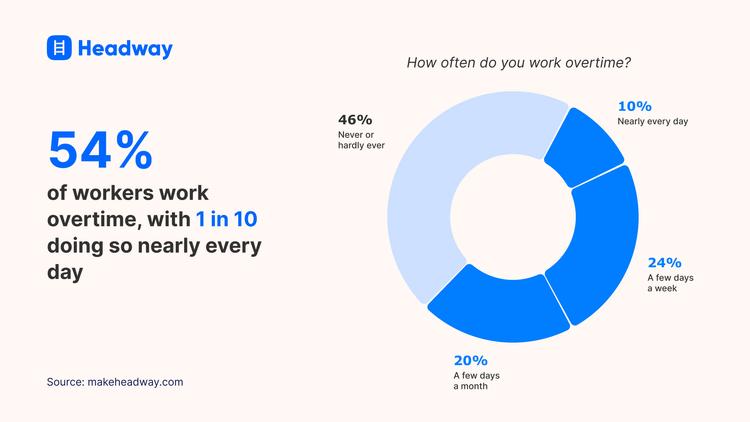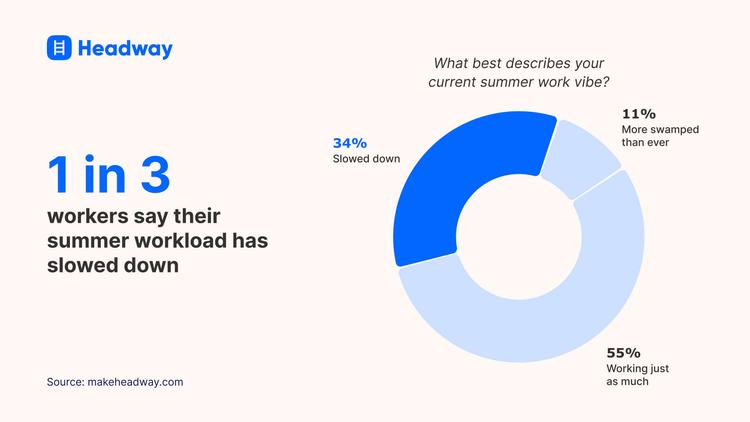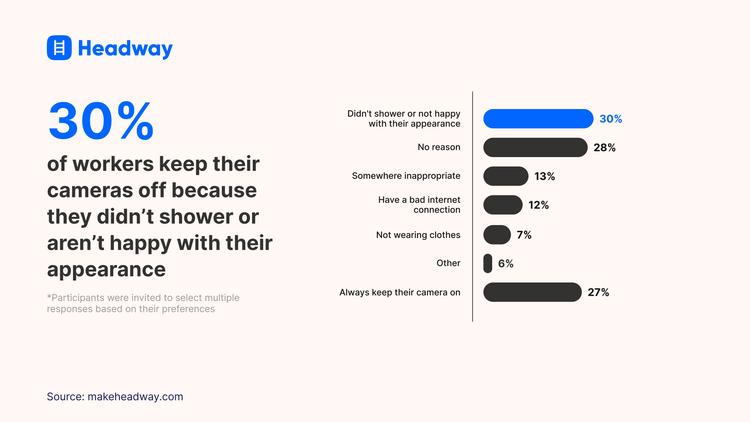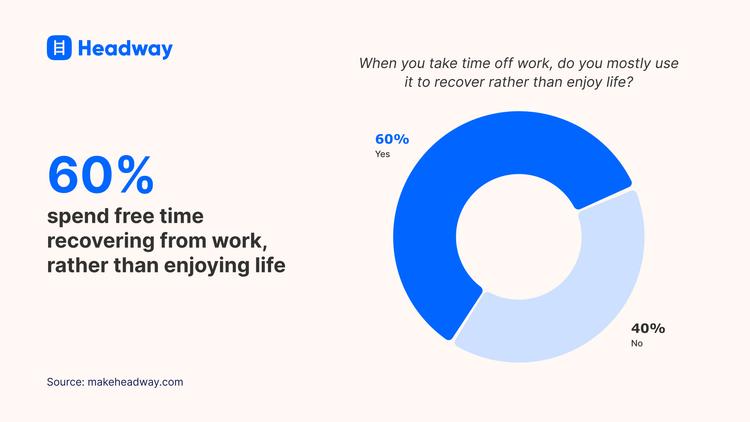Key takeaways:
Some 62% of workers are considering leaving their current role, with 42% actively applying for new jobs.
While purpose, growth, and flexibility matter to employees, 79% say money is their primary motivator for seeking a new role.
Some 36% believe a new qualification could help them land a better job. However, many aren’t opposed to lying on resumes. Statistics show 31% are willing to embellish details to land a better role.
While 21% have taken a course and 27% have self-taught new skills, 52% have yet to upskill in 2025.
With wage growth slow, opportunities to progress limited, and employers demanding more for less, the workforce is at its breaking point.
Workers are blowing the dust off their resumes, recovering long-forgotten Indeed passwords, and brushing up on interview skills they haven't used in years.
Headway app's career change survey quizzed 2,000 workers on their work desires, job-hunting habits, and just how far they're willing to go to land their next role.
Clocking out, moving on: Is the workforce considering a change?
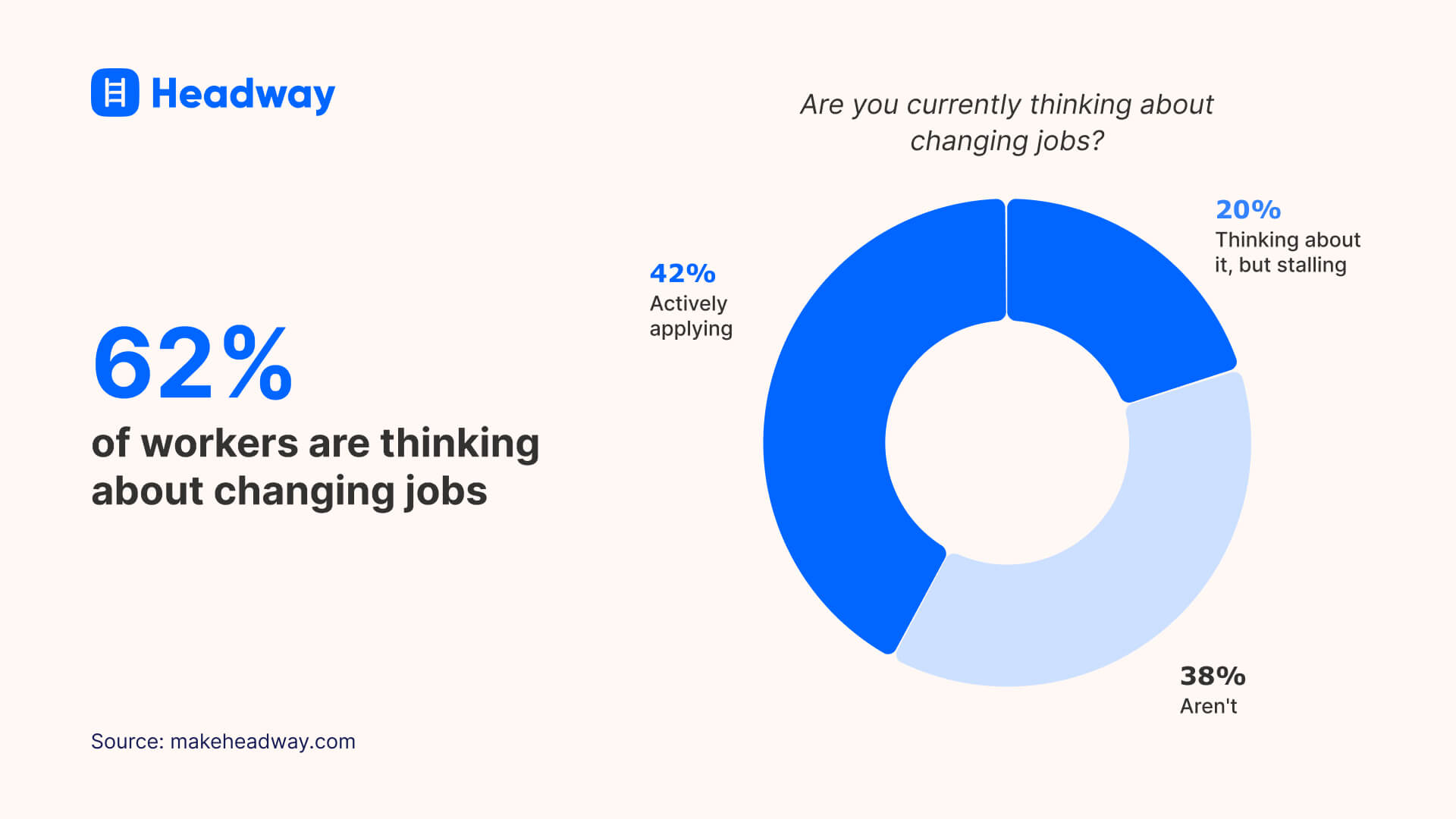
If you go by the latest job satisfaction statistics, 2025 could be the year workers head for the exit en masse – and not for their summer vacation.
In fact, 62% are seeking to leave permanently, with 42% actively applying for new roles and another 20% keeping a close eye on the job market.
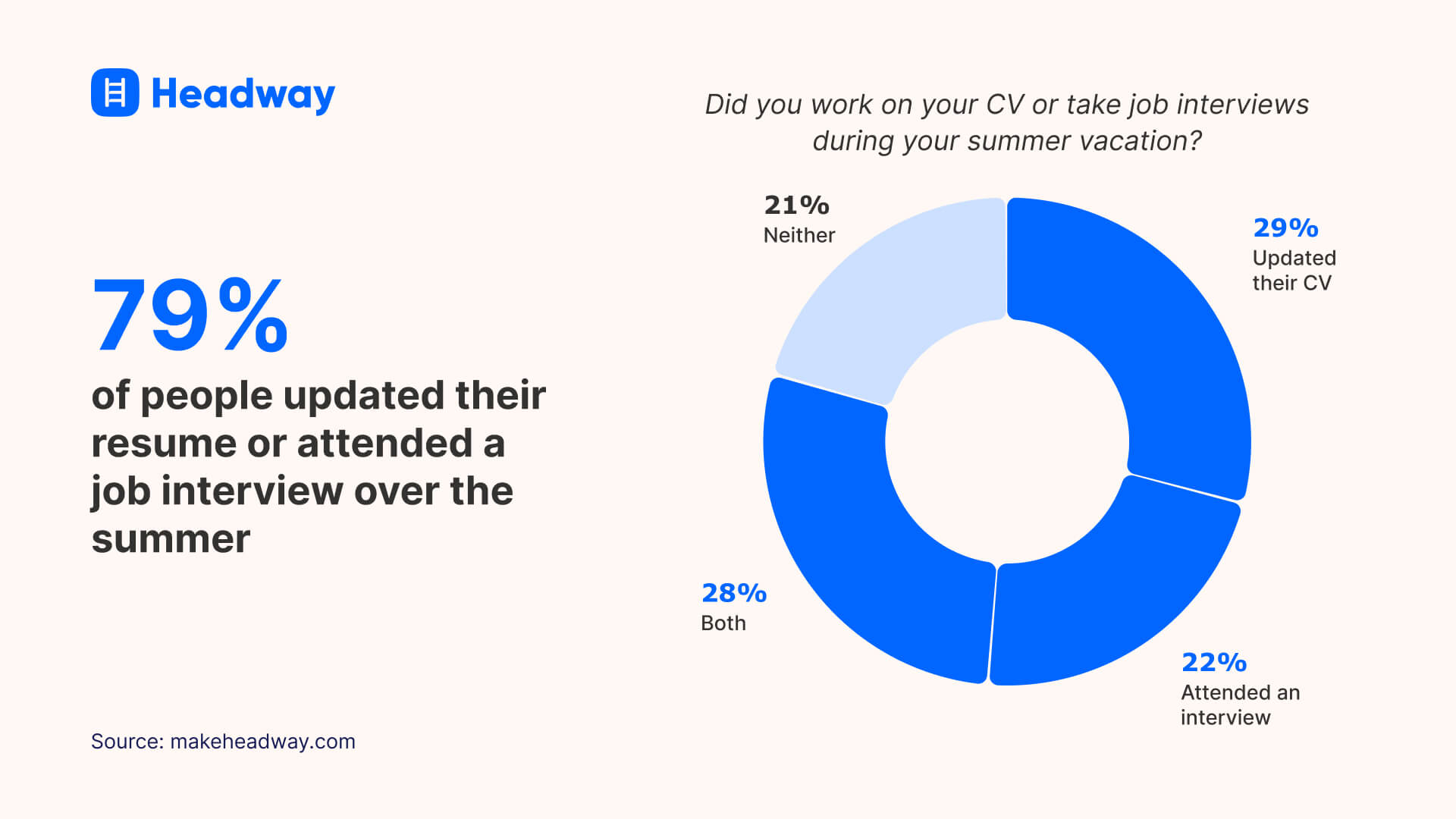
Workers haven’t been soaking up the sun this summer – they’ve spent it scouring job listings.
Some 29% have spent time updating their resumes, 22% have attended job interviews, and 28% have done both.
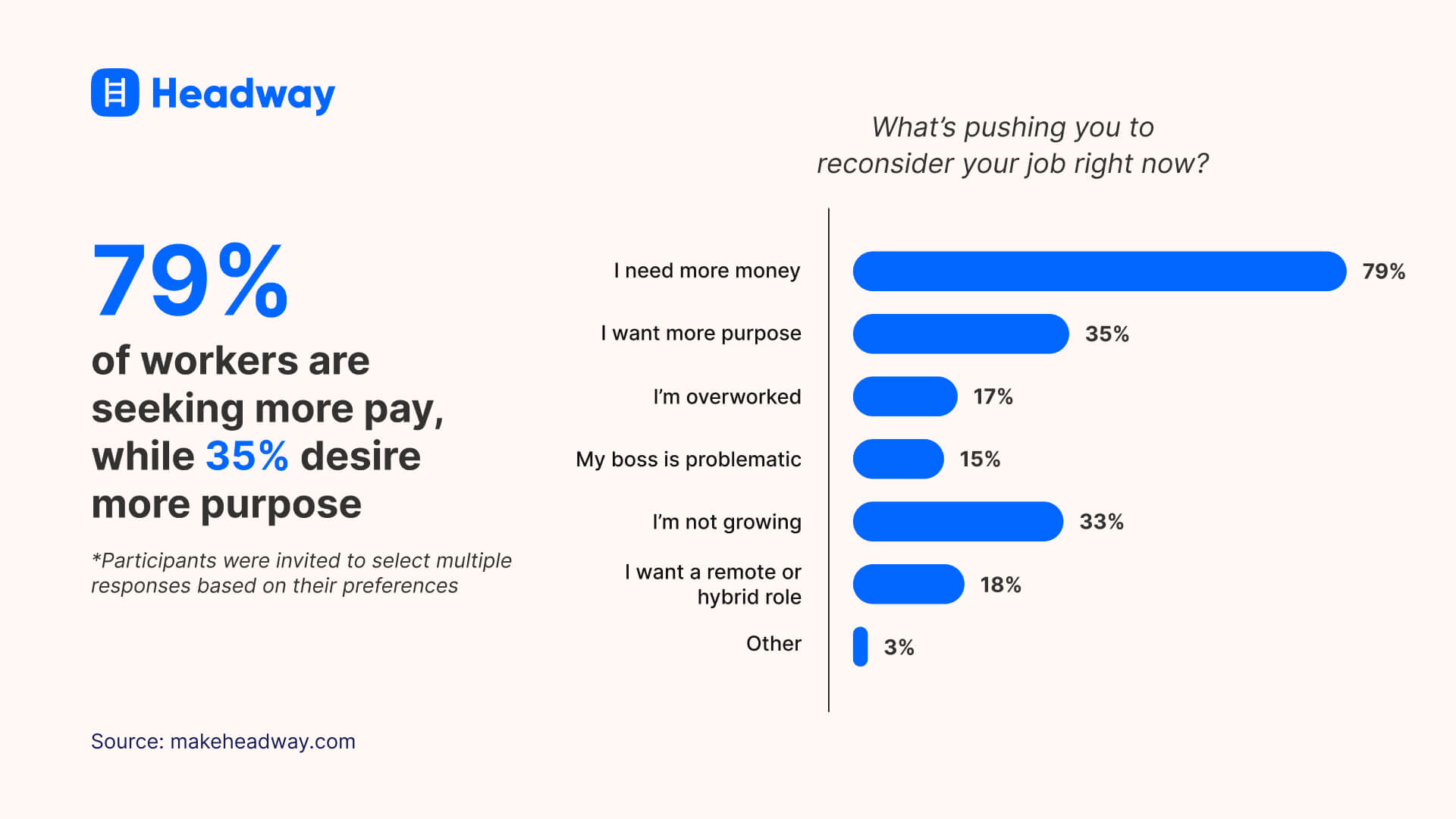
What's causing high employee turnover? Survey results show 35% percent are chasing purpose, 33% crave growth, and 18% dream of flexibility.
Sure, they've nice perks – but one factor rules the job hunt: cold, hard cash. With inflation ever-rising, 79% admit that money is their main motivation for seeking a new role.
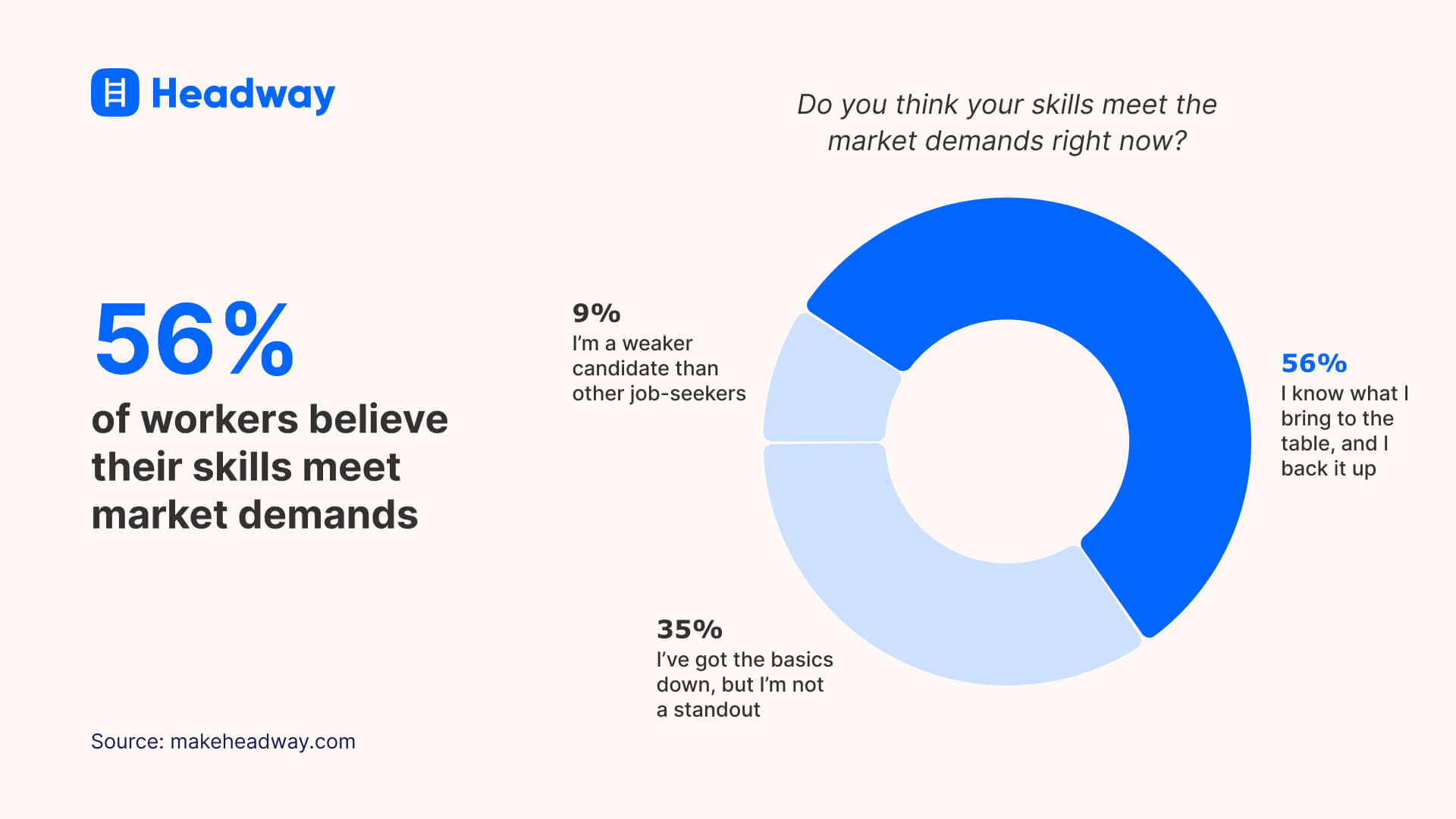
And it’s bad news for employers hoping a shortage of roles will save them. Workers are confident they can land better roles – with 56% insisting they have the skills the market demands and are ready to back up what they bring to the table.
Show me the money: Can cash stop the talent exodus?
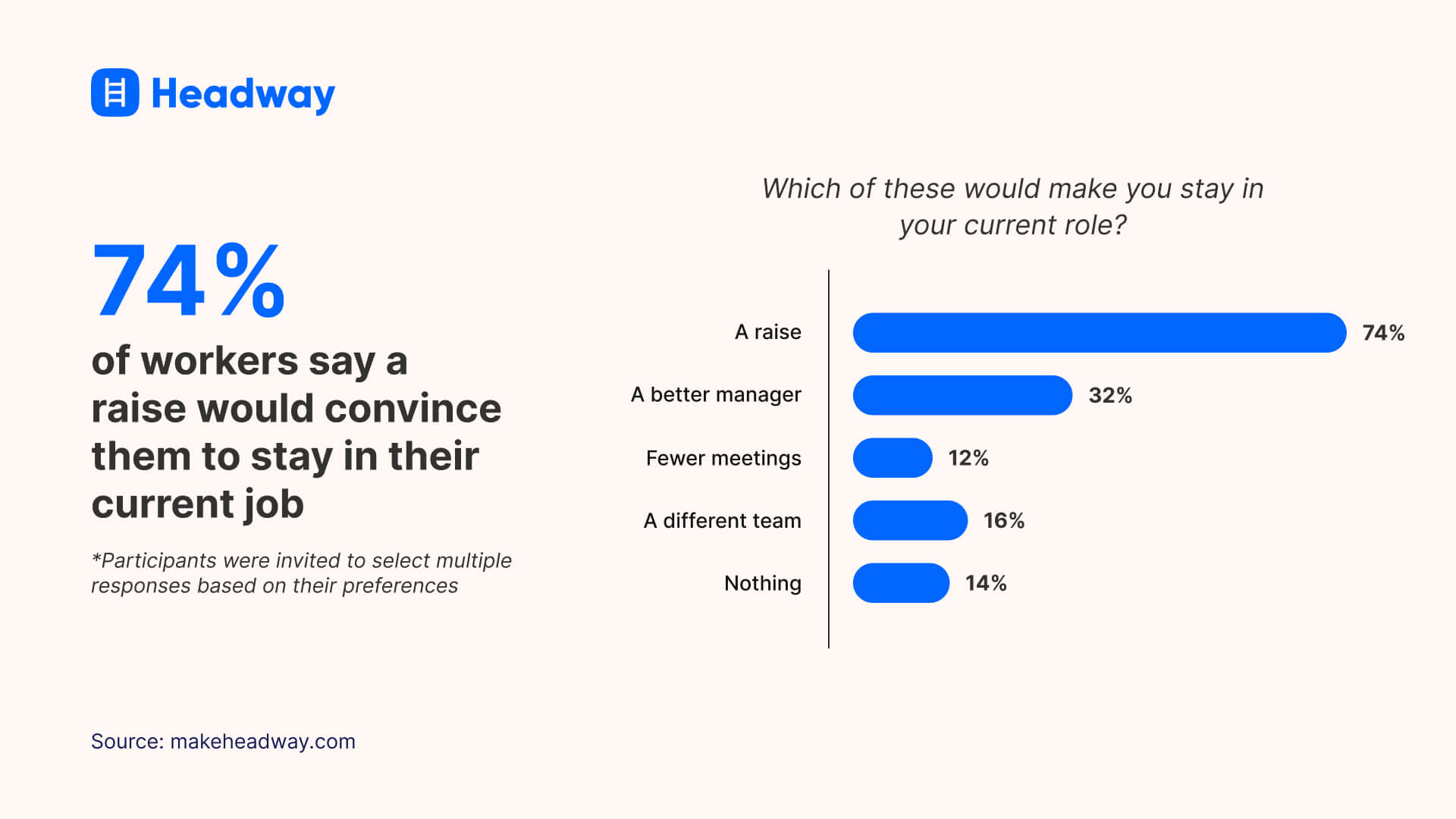
It's often said not to throw money at a problem… but when the root cause is poor pay and decades of wage stagnation? That’s likely an employer's best bet.
While 32% would stick around as long as their manager doesn't, and 16% would be happy simply switching teams, 74% admit a raise would keep them put.
In other words, this employee retention survey shows you can buy loyalty – at least temporarily.
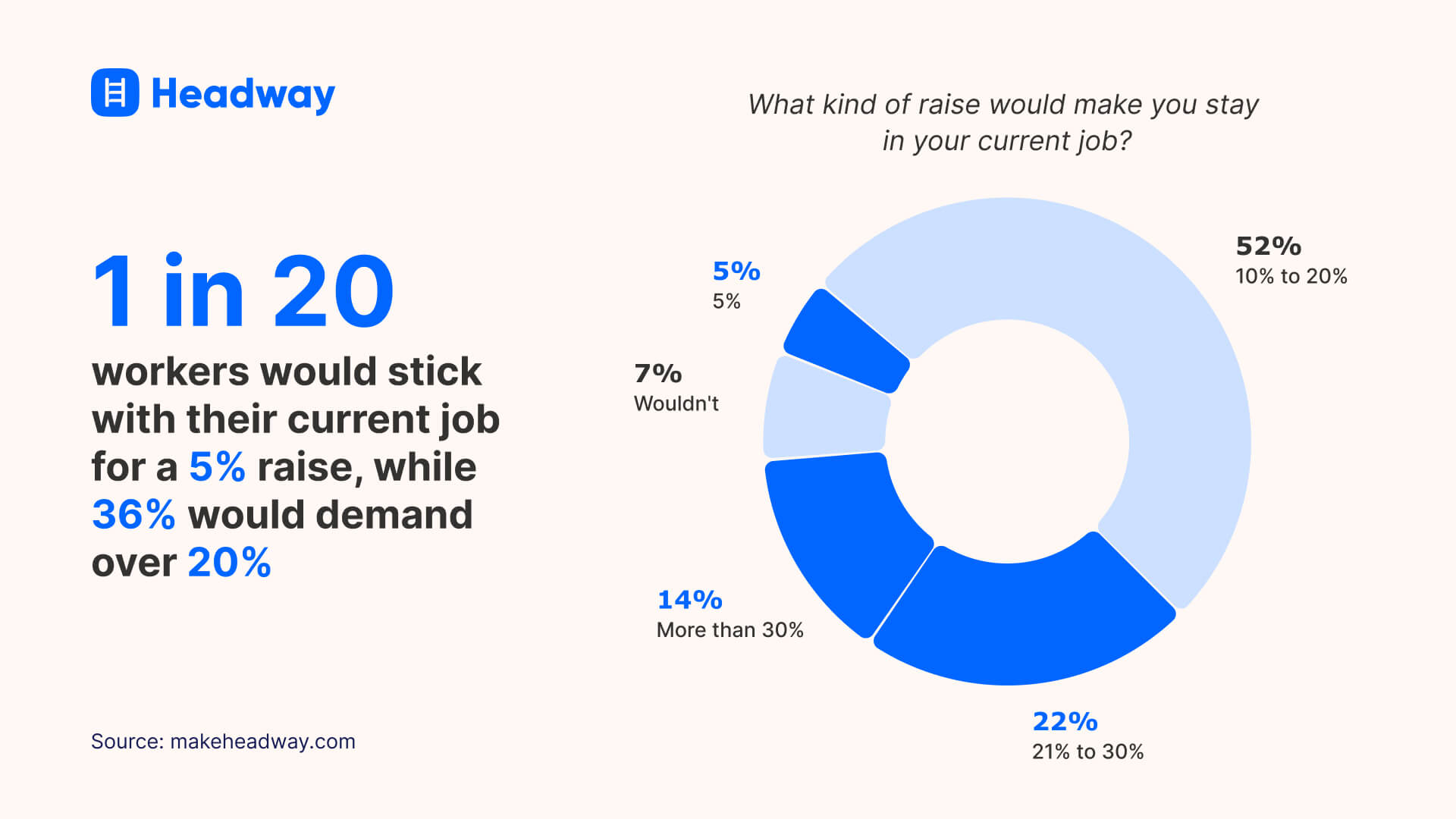
While loyalty has a price, most workers aren’t settling for pocket change. Just 5% would stick around for a 5% raise, while the majority (52%) are seeking between 10% and 20%.
Even so, given the steep cost of employee turnover, pay hikes could be the cheapest move for employers to make.
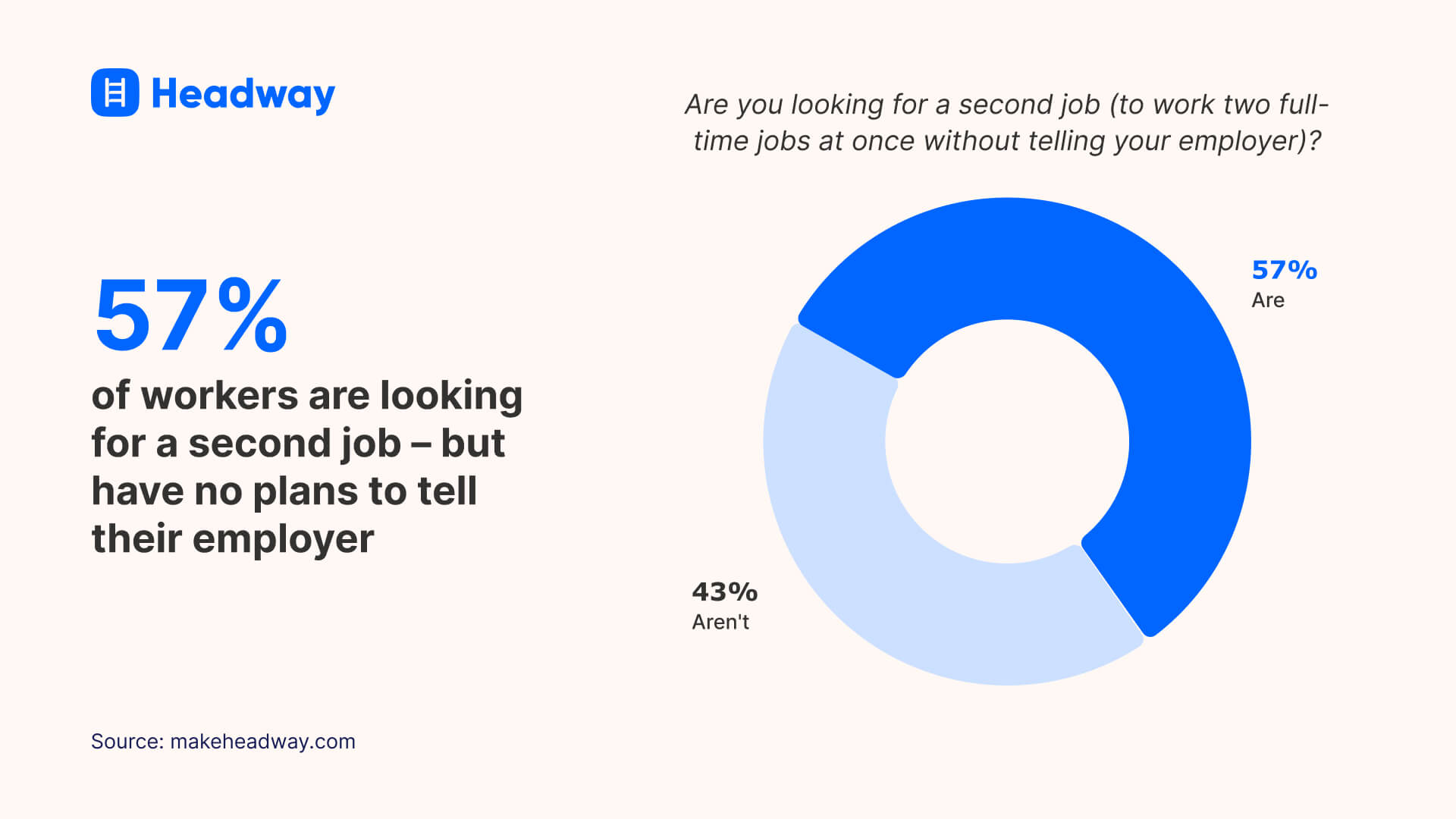
When pay is tight and opportunities scarce, employees don't quit – they moonlight. Some 57% admit they're searching for a second job and have no plans to tell their current employer.
They won't know until the fatigue sets in, burnout hits, and productivity falls, costing companies far more than a raise ever would.
CVs, calls, and cold shoulders: Common job search struggles
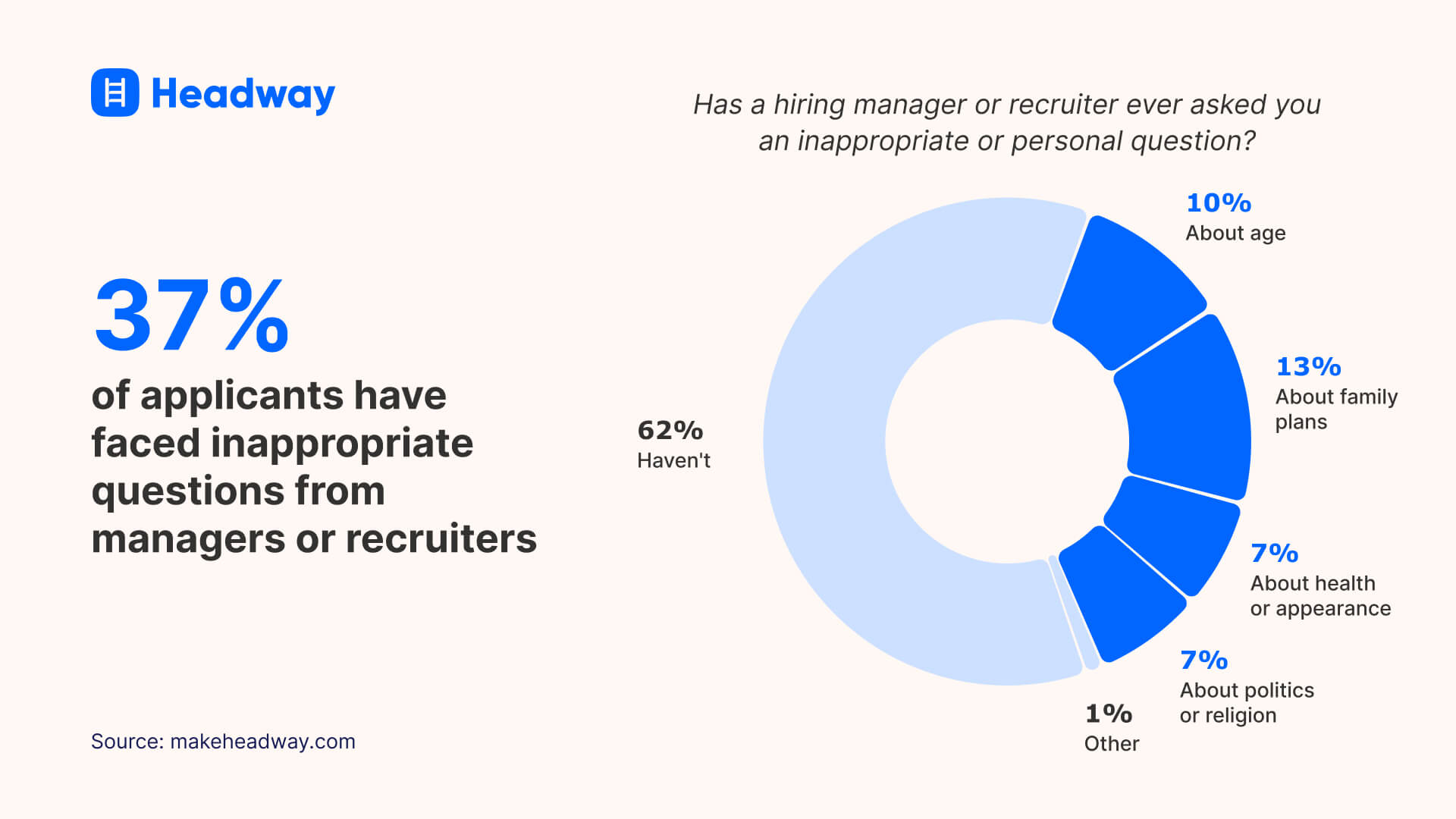
As if being grilled on your experience, skills, and qualifications isn't stressful enough, job interviews often descend into personal evaluations, rather than professional ones.
Some 37% report facing inappropriate questions from hiring managers and recruiters about their family plans, age, appearance, and personal beliefs – topics entirely unrelated to the job.
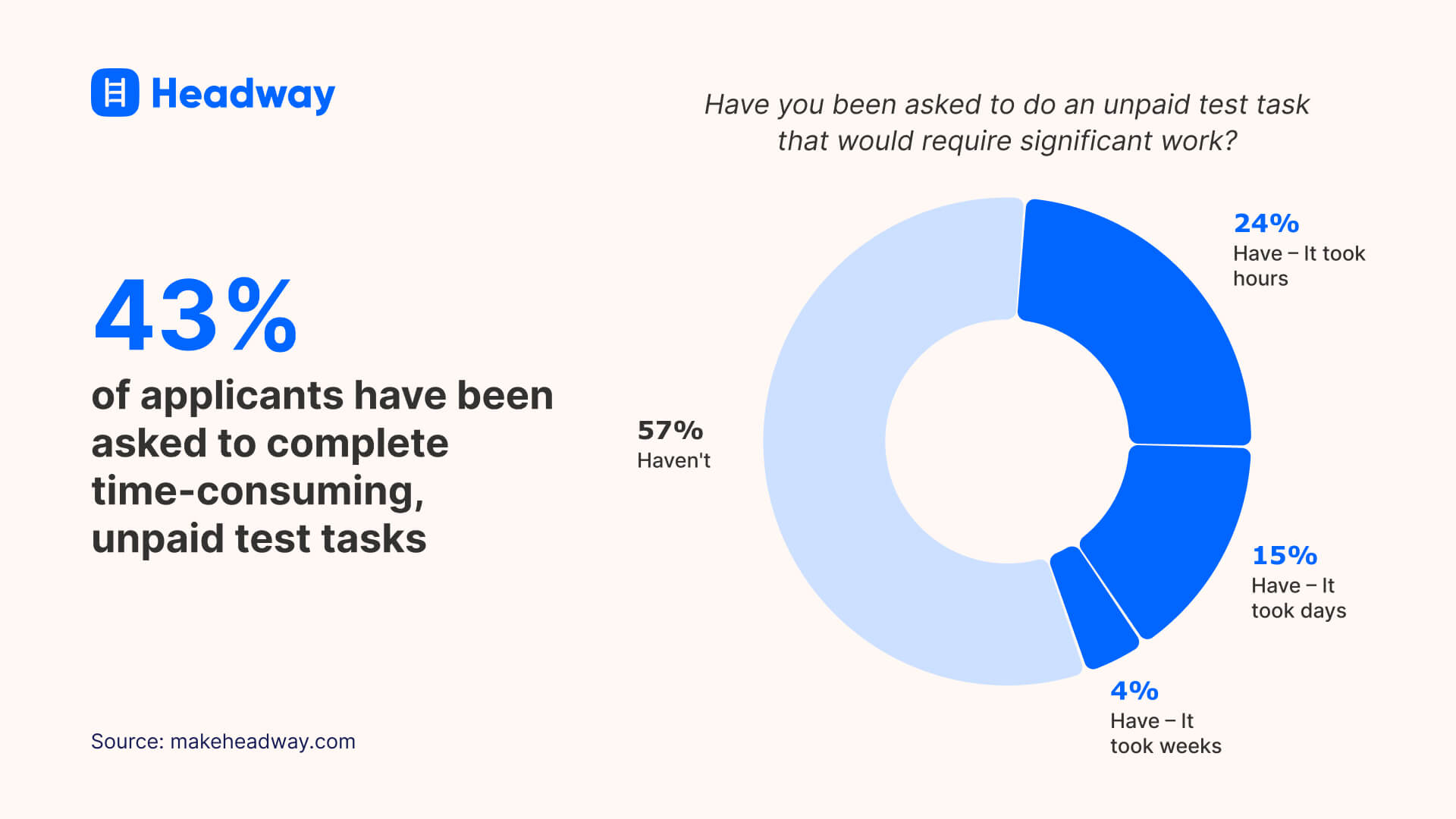
The reward for making it through the initial interview? Unpaid work. Some 43% of applicants have taken test tasks, with 21% insisting they took days or weeks to complete.
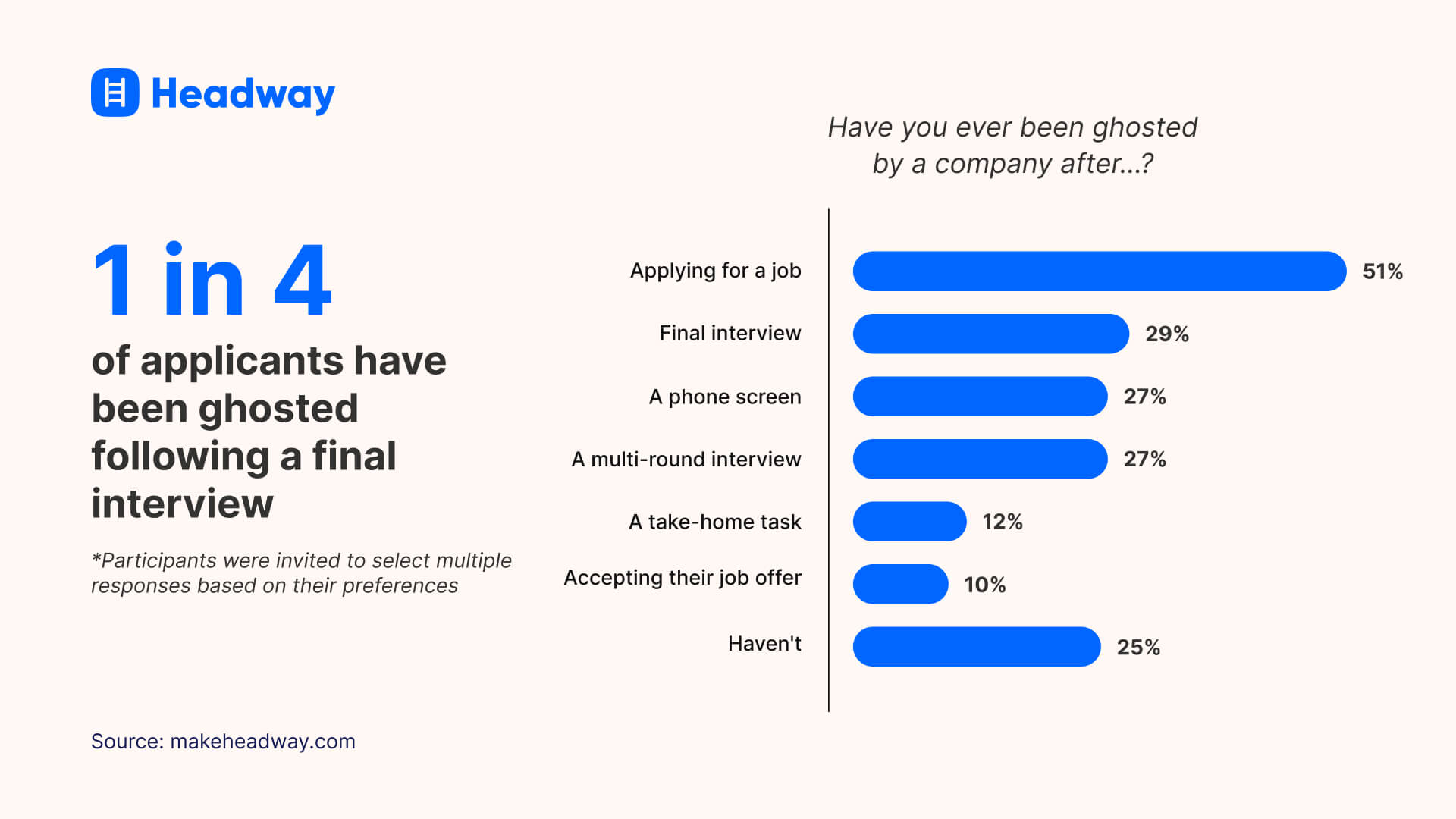
You spend hours perfecting your resume, sweating through interviews, and grinding out test tasks, and then… silence. Not so much as an automated rejection email.
Some 75% of applicants say they've been ghosted by a company in the past, despite 29% having made it to the final interview and 10% having already received a job offer.
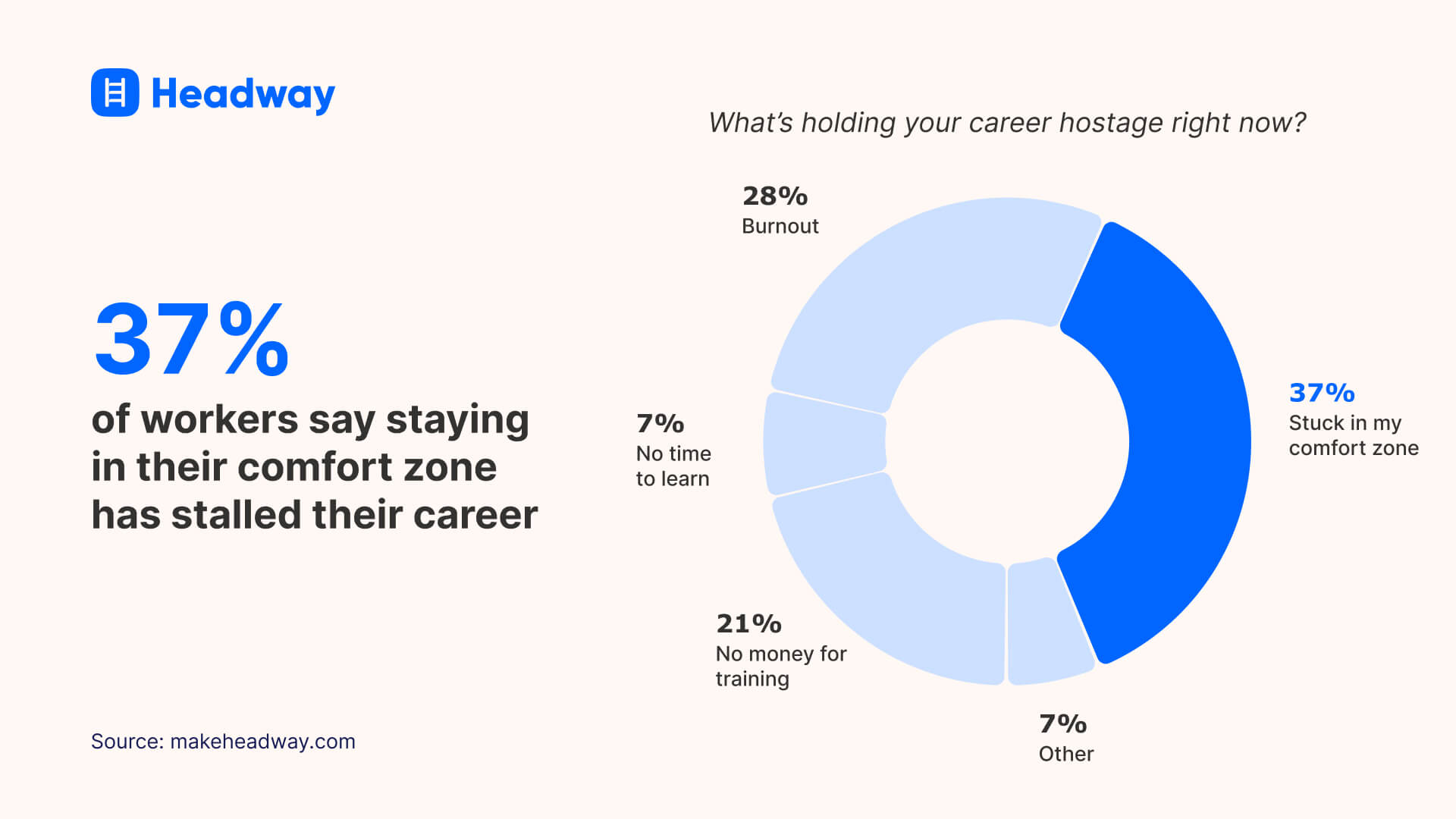
With the job search like a second full-time role, many choose to stick to their comfort zone and stay put.
But that choice comes at a cost, with 37% admitting their careers have stalled and opportunities have passed them by.
Leveling up (or lying): Does embellishment pay off for job-seekers?
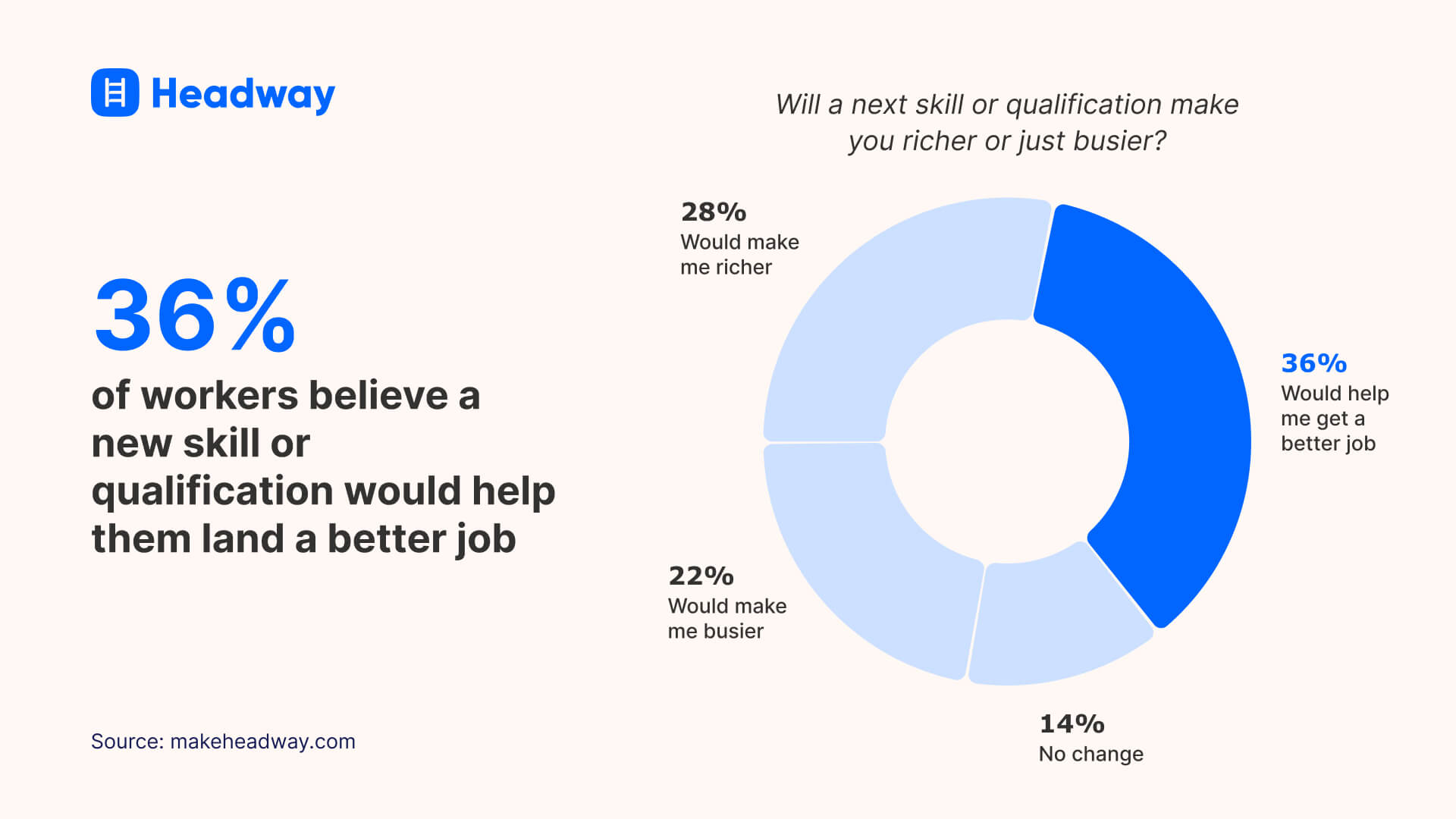
Thirty-six percent of workers believe that learning a new skill or qualification could help them land a better job.
Yet, while 28% see it as a route to higher pay, 22% worry that it will just increase their burden with little payoff.
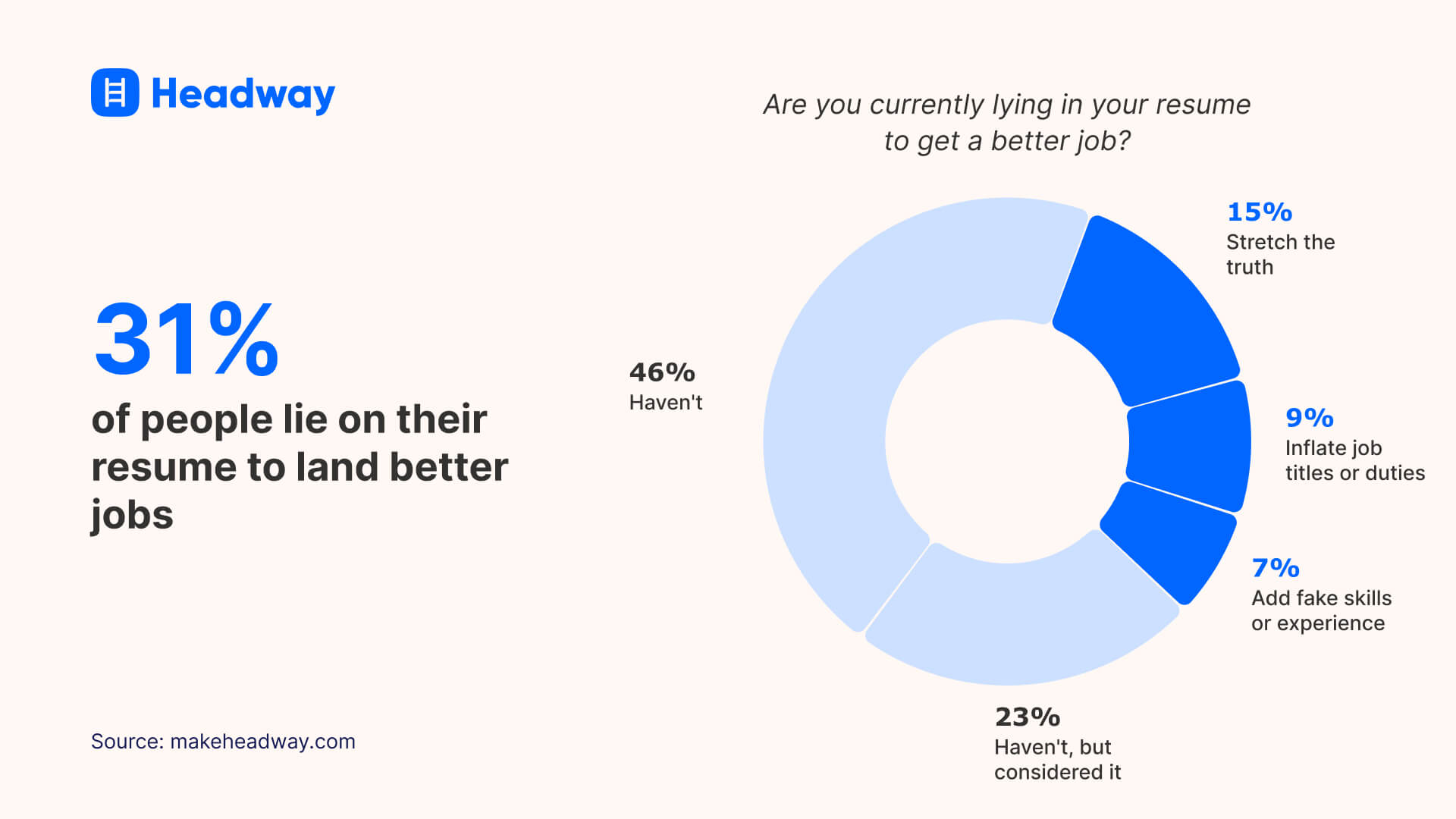
While many workers are busy learning new skills, others are simply lying their way into a better role.
Some 31% admit to bending the truth, with 7% adding fake skills or experience to their resumes, and 9% fabricating job titles and duties to give them the upper hand over other candidates.
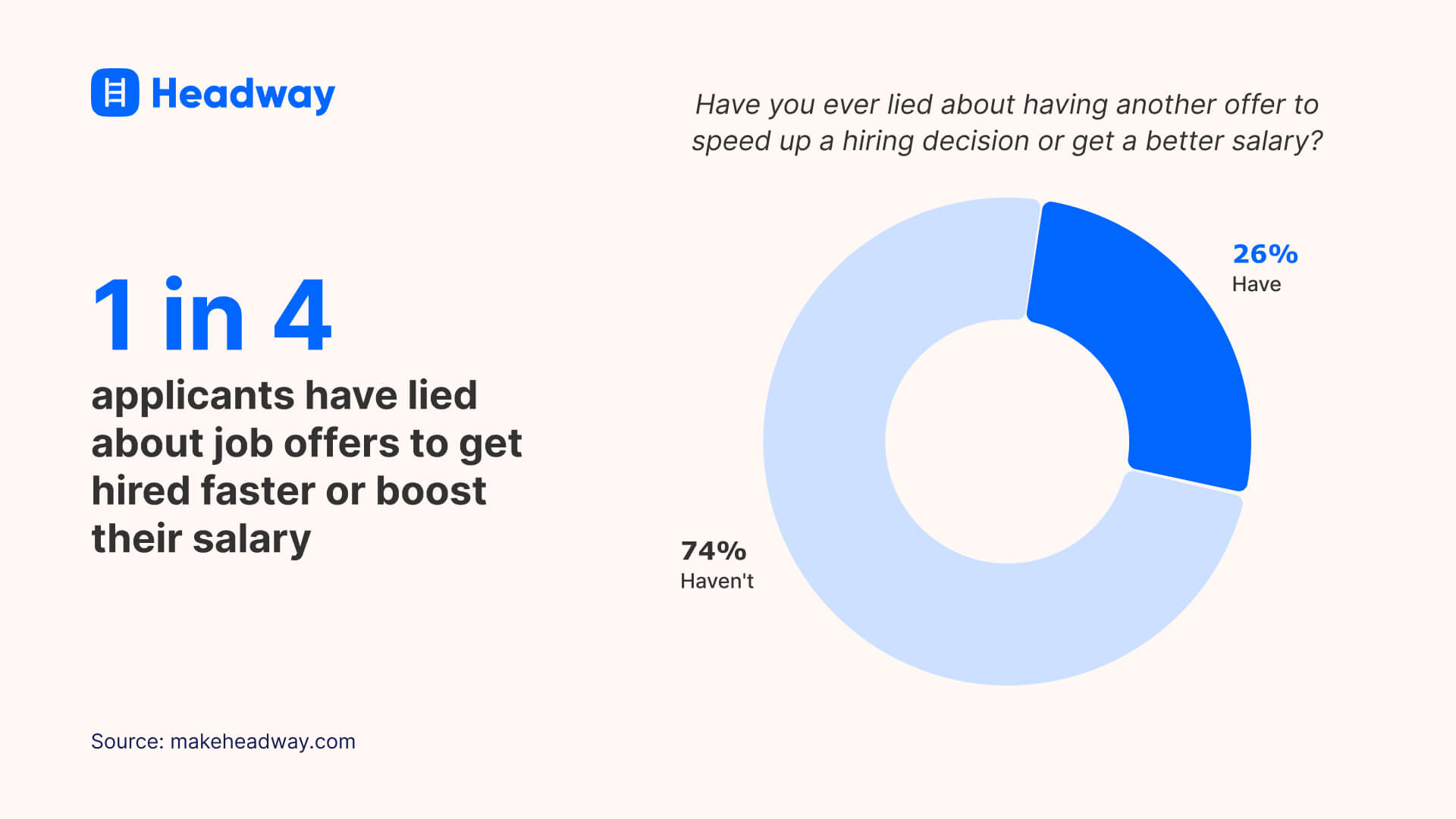
Embellishment is seemingly a core soft skill among job-hunters looking to get ahead. Some 26% admit to bluffing their way to a better paycheck or fabricating job offers to make the hiring process faster.
Working hard or hardly working: Are workers upskilling in 2025?
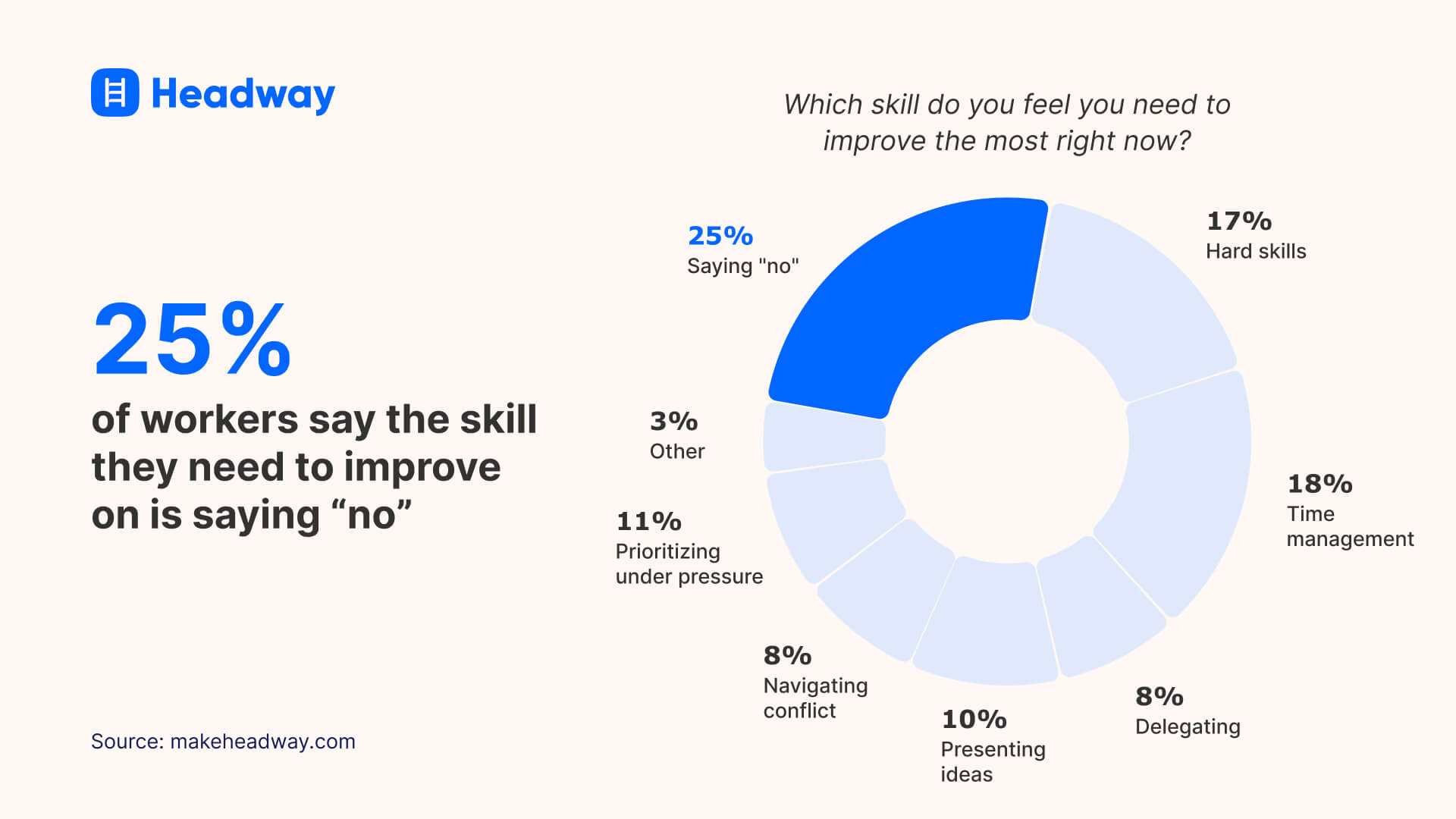
For 18% of workers, time management is their biggest challenge. Likewise, 17% need to improve industry-specific hard skills, and 11% struggle to prioritize under pressure.
But the toughest skill to master, according to 25% of people, is saying "no." Because, for as much as we want to please our bosses and do a good job, overworking and inevitable burnout don’t benefit anyone.
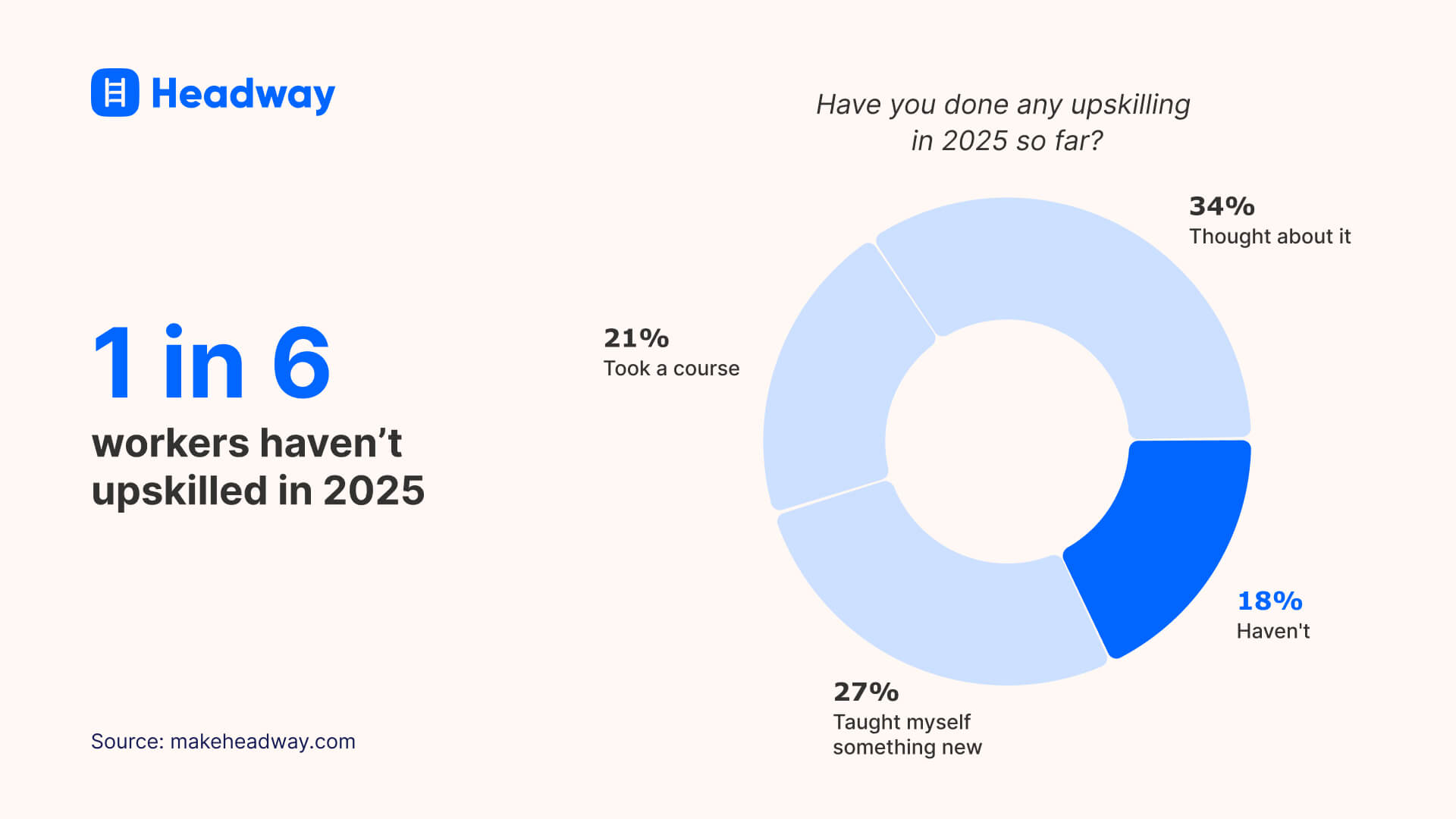
We might be good at recognizing our limitations, but finding time in our busy schedules to work on them? Not so much.
While 21% have taken a course and 27% taught themselves something new, 18% haven't made any effort to upskill this year – and another 34% have only thought about it.
The modern workforce is ambitious, restless, and well aware of its worth. Despite grueling interview processes and perks that leave plenty to be desired, workers are weighing up their options and searching for something better.
For employers, the message is clear: invest in your people and improve your employee satisfaction statistics… or risk them walking away.
Methodology: To create this study, researchers from Headway app surveyed 2,000 professionals of all genders, aged 18 and over. The survey took place in August 2025.
About the Headway app
With over 50 million users in 170+ countries, the Headway app is the world's most downloaded book summary app. It offers 15-minute audio and text summaries of nonfiction bestsellers, as well as daily microlearning sessions and gamified challenges.
The app is designed to help people achieve their self-development goals. Headway received the Editor's Choice award from the US App Store and constantly hits the App Store home screen as App of the Day.

